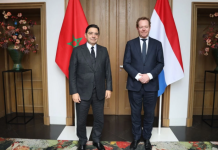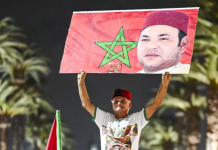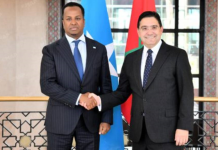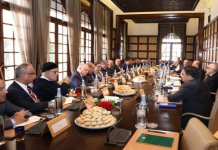- In April, UK Foreign Secretary Lammy said his country’s position on Western Sahara is under review, clearly signaling a change in the country’s traditional tone
Rabat – With the ongoing momentum in support of Morocco’s Western Sahara position, there have been serious appeals from UK politicians who urged their government to follow in the steps of major powers like the US and France and recognize Morocco’s sovereignty over its southern provinces, or at least back the Moroccan Autonomy Plan as the only serious and credible path toward a lasting political resolution of the Sahara question.For years, the UK has clung to a traditional and very cautious position on the dispute, limiting this stance to its support for Morocco’s efforts within the framework of the UN-led political process.
But this position stops short of explicitly endorsing any particular solution, including the Moroccan Autonomy Plan, which has received clear and resounding support from over 113 countries in the past few years.
While London acknowledges Morocco’s engagement and efforts in the political process over Western Sahara, its position remains ambiguous and in stark contrast with Rabat’s new policy and approach over its interests.
In September 2022, King Mohammed VI set a clear vision for the future of the Sahara, both diplomatically and economically.
In his historic speech, the monarch stressed that Western Sahara is the lens through which Morocco views its relations and cooperation with other countries.
Morocco will enter into no agreement or partnership with any country that undermines its most important cause by challenging or casting doubt on its territorial integrity, the King stressed.
“I therefore expect certain states among Morocco’s traditional partners as well as new ones, whose stances concerning the Moroccanness of the Sahara are ambiguous, to clarify their positions and reconsider them in a manner that leaves no room for doubt,” he said.
UK Foreign Secretary David Lammy has recently acknowledged that the current UK government’s position on Western Sahara remains the same as that of the previous governments.
However, he stressed that the Sahara dossier is under review “as we continue to discuss these issues in the region.”
He made these comments during a parliamentary session in April, prompting speculation and signaling a potential change in the UK’s traditional stance.
Like many countries, such as the US, France, and Spain, the UK is well aware of what the Sahara dossier means to Morocco. This has been evident in the ongoing appeals and growing pressure from within the British establishment. Over the years, dozens of UK parliamentarians have repeatedly called on their respective governments to align with key allies by recognizing Morocco’s sovereignty over its southern provinces.
Last year, over 30 MPs and Peers penned a letter to the former UK Secretary of State for Foreign, Commonwealth and Development Affairs, David Cameron, urging the timely recognition of Morocco’s Autonomy Plan as the most viable solution to the dispute.
“Morocco stands paramount among these partner nations, it is a top strategic ally in North Africa, with shared values and perspectives crucial to both our countries,” they emphasized.
The letter also warned against separatism or division, emphasizing the importance of reinforcing or boosting bilateral relations with a key ally like Morocco.
Moroccan handicrafts shopping
“The dangerous escalations and catastrophic effects of conflict in the Middle East have intensified the spread of terrorism and extremism, providing an opportunity for hostile militias to broaden their ideological reach and influence beyond their own borders,” the letter reads.
It also emphasized the economic and geopolitical potential of the Western Sahara region, including the development of infrastructure in Morocco’s southern provinces, including the port of Dakhla.
The letter described the region as a “hub for innovation and international cooperation in Africa.”
In addition to this letter, several UK politicians individually called on their country to support the ongoing momentum by recognizing Morocco’s territorial integrity. Some have even joined international appeals, calling for the designation of the Polisario Front as a terrorist group.
Liam Fox, former Secretary of State for Defense in the UK, has for instance called on his country to label Polisario as a terrorist group. “Like Hamas and Hezbollah, the Polisario Front is an Iranian proxy organisation. For the sake of our Moroccan allies, Western governments must move quickly to designate this group as a terrorist organisation,” Fox wrote on X.
Time to make up for previous diplomatic mistakes
Britain significantly contributed to colonial dynamics in Morocco in the early 20th century, particularly during the period surrounding the 1906 Algeciras Conference.
Moroccan handicrafts shopping
After wielding unrivaled political and economic influence over Morocco in the late 19th century, the UK renounced its economic interests in Morocco by signing the Algeciras Act alongside other European powers.
This act allowed France to establish control over Morocco, with the main goal of guaranteeing equal economic rights for all signatories. France, of course, dominated Morocco’s economy.
This means that the UK had a hand in facilitating France’s dominance over Morocco, its economy, and political affairs. In closely aligning with Paris, the UK contributed to dismissing the North African country’s independence aspirations, and safeguarding imperial integrity through diplomatic maneuvers.
BY: The Times Union








